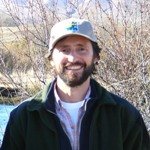 |
Land Conservation Director
Andrés is a researcher in the Argentine National Research Council (CONICET) and has spearheaded WCS’ conservation and research in the Patagonian and Andean Steppe since 1999. He studied the effects of hunting on culpeo foxes for his PhD at the University of Florida. He has led research and conservation action related to ecological extinction of native wildlife, guanaco migrations, and predator-livestock conflict, and mentored numerous graduate and undergraduate students. He received a Whitley Fund for Nature award in 2005 for leading a WCS team working with government and oil companies to close oil roads that provided access to remote areas where wildlife had been decimated by poaching. He has been a key participant in the launching of and planning for the WCS Karukinka landscape in Chile, conservation planning for the steppe’s biodiversity, development of sustainable livestock practices, mitigation of extractive industry impacts, and strengthening of protected areas.
|
 |
Andrés Novaro
Land Conservation Director
Andrés is a researcher in the Argentine National Research Council (CONICET) and has spearheaded WCS’ conservation and research in the Patagonian and Andean Steppe since 1999. He studied the effects of hunting on culpeo foxes for his PhD at the University of Florida. He has led research and conservation action related to ecological extinction of native wildlife, guanaco migrations, and predator-livestock conflict, and mentored numerous graduate and undergraduate students. He received a Whitley Fund for Nature award in 2005 for leading a WCS team working with government and oil companies to close oil roads that provided access to remote areas where wildlife had been decimated by poaching. He has been a key participant in the launching of and planning for the WCS Karukinka landscape in Chile, conservation planning for the steppe’s biodiversity, development of sustainable livestock practices, mitigation of extractive industry impacts, and strengthening of protected areas.
|
|
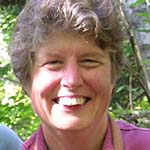 |
Vice President, Species Conservation, Species
Elizabeth Bennett is Vice President, Species Conservation, at WCS. Raised in the UK, Elizabeth went to Nottingham University to read zoology, and then to Cambridge University for her PhD on the ecology of primates in Peninsular Malaysia. She then moved to Sarawak, Malaysia in 1984, and lived and worked there for the next 18 years. Her first role there was working jointly for WCS and WWF Malaysia, to conduct the first-ever detailed study of the ecology and conservation needs of the proboscis monkey. She subsequently conducted many projects for WCS and the Sarawak Government, culminating in her leading a team, with WCS and Sarawak Government staff, to write a comprehensive wildlife policy for the State, and subsequently to head a unit within the Government to oversee its implementation. A core part of the policy and its implementation comprised ways to control unsustainable hunting and wildlife trade. More recently, Elizabeth has worked to direct wildlife trade initiatives for WCS field staff globally as Director of the Hunting and Wildlife Trade Program. Her work included developing and implementing a policy on bushmeat trade in Central Africa, and working on a strategic plan to address wildlife trade in China. She provided technical support to WCS field staff working on hunting and wildlife trade issues in 65 projects and 29 countries worldwide. She has more than 120 scientific and popular publications, includingco-editing a book which is a comprehensive review of the issue of hunting in tropical forests, and the World Bank policy paper on the same topic. Her services to conservation have been recognized by her being awarded the “Golden Ark” award by Prince Berhard of the Netherlands in 1994, the “Pegawai Bintang Sarawak” (PBS) by the Sarawak State Government in 2003, “Member of the Most Excellent Order of the British Empire” (MBE) by Her Majesty Queen Elizabeth II in 2005, Leila Hadley Luce Award for Courage by Wings WorldQuest in 2006, and D.Sc. (honoris causa) by Nottingham University, UK in 2008.
|
 |
Elizabeth Bennett
Vice President, Species Conservation, Species
Elizabeth Bennett is Vice President, Species Conservation, at WCS. Raised in the UK, Elizabeth went to Nottingham University to read zoology, and then to Cambridge University for her PhD on the ecology of primates in Peninsular Malaysia. She then moved to Sarawak, Malaysia in 1984, and lived and worked there for the next 18 years. Her first role there was working jointly for WCS and WWF Malaysia, to conduct the first-ever detailed study of the ecology and conservation needs of the proboscis monkey. She subsequently conducted many projects for WCS and the Sarawak Government, culminating in her leading a team, with WCS and Sarawak Government staff, to write a comprehensive wildlife policy for the State, and subsequently to head a unit within the Government to oversee its implementation. A core part of the policy and its implementation comprised ways to control unsustainable hunting and wildlife trade. More recently, Elizabeth has worked to direct wildlife trade initiatives for WCS field staff globally as Director of the Hunting and Wildlife Trade Program. Her work included developing and implementing a policy on bushmeat trade in Central Africa, and working on a strategic plan to address wildlife trade in China. She provided technical support to WCS field staff working on hunting and wildlife trade issues in 65 projects and 29 countries worldwide. She has more than 120 scientific and popular publications, includingco-editing a book which is a comprehensive review of the issue of hunting in tropical forests, and the World Bank policy paper on the same topic. Her services to conservation have been recognized by her being awarded the “Golden Ark” award by Prince Berhard of the Netherlands in 1994, the “Pegawai Bintang Sarawak” (PBS) by the Sarawak State Government in 2003, “Member of the Most Excellent Order of the British Empire” (MBE) by Her Majesty Queen Elizabeth II in 2005, Leila Hadley Luce Award for Courage by Wings WorldQuest in 2006, and D.Sc. (honoris causa) by Nottingham University, UK in 2008.
|
|
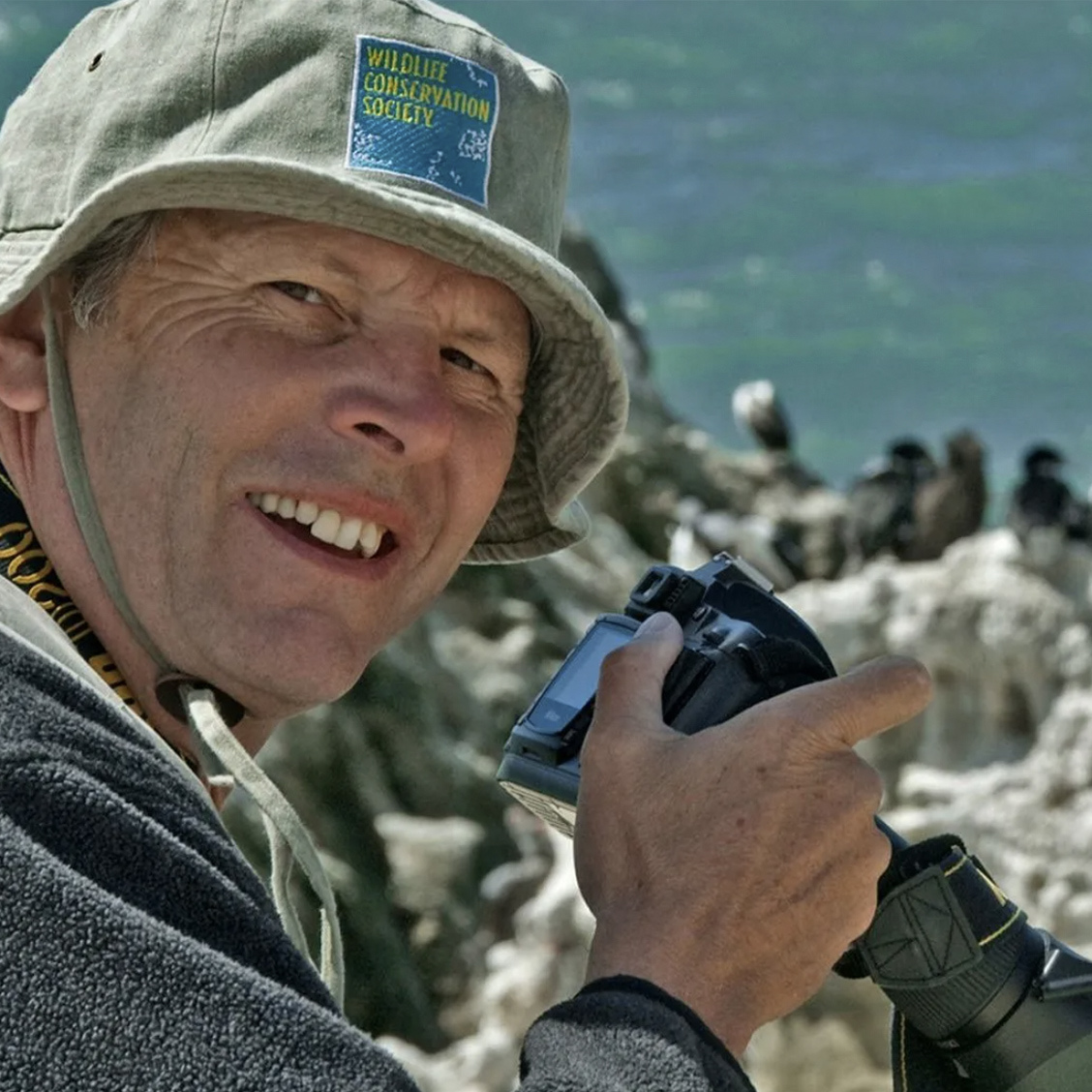 |
Senior Conservacionist
Graduated as a veterinarian in the Buenos Aires University, is also a wildlife artist and writer. Based at the Wildlife Conservation Society’s field station at Golfo San José, on the coast of Patagonia between 1981 and 1991 writing and illustrating field guides on local wildlife. On staff with WCS since 1992, was named WCS Country Director for Argentina in 2000. Directed projects funded by the United Nations Development Program (UNDP) and the Global Environmental Facility (GEF) aimed at strengthening management and wildlife conservation on the coast of Patagonia from 1993 to 2014. These projects were instrumental in the reduction of oiling of Magellanic penguins at sea and in the creation of the first marine park in Argentina, a 1,100 square kilometer coastal marine protected in the north of Golfo San Jorge, in 2009. Author of Princeton's "Guide to the birds and mammals of coastal Patagonia" and co-author of Acindar's two tome "Nueva Guía de Aves Argentinas". Harris received the Bay and Paul Biodiversity Leadership award in 2005 and WCS’s Conway Fellowship award in 2008.
|
 |
Guillermo Harris
Senior Conservacionist
Graduated as a veterinarian in the Buenos Aires University, is also a wildlife artist and writer. Based at the Wildlife Conservation Society’s field station at Golfo San José, on the coast of Patagonia between 1981 and 1991 writing and illustrating field guides on local wildlife. On staff with WCS since 1992, was named WCS Country Director for Argentina in 2000. Directed projects funded by the United Nations Development Program (UNDP) and the Global Environmental Facility (GEF) aimed at strengthening management and wildlife conservation on the coast of Patagonia from 1993 to 2014. These projects were instrumental in the reduction of oiling of Magellanic penguins at sea and in the creation of the first marine park in Argentina, a 1,100 square kilometer coastal marine protected in the north of Golfo San Jorge, in 2009. Author of Princeton's "Guide to the birds and mammals of coastal Patagonia" and co-author of Acindar's two tome "Nueva Guía de Aves Argentinas". Harris received the Bay and Paul Biodiversity Leadership award in 2005 and WCS’s Conway Fellowship award in 2008.
|
|
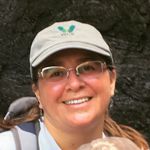 |
Director, Amazonía
Mariana Varese is the Director of Amazon Landscapes and the Citizen Science for the Amazon Project at the Wildlife Conservation Society (WCS). A natural resources economist with over 15 years of conservation experience in the Amazon and Latin America and the Caribbean, Mariana Varese holds an M.A. In Latin American Studies from the University of Florida. Mariana has ample experience in community-based conservation, landscape and multi-scale conservation approaches, natural resource economics, and evidence-based participatory planning and adaptive management. Her current areas of interest citizen engagement in science, conservation and sustainable development; the effective use of evidence in decision making; and public goods.
|
 |
Mariana Varese
Director, Amazonía
Mariana Varese is the Director of Amazon Landscapes and the Citizen Science for the Amazon Project at the Wildlife Conservation Society (WCS). A natural resources economist with over 15 years of conservation experience in the Amazon and Latin America and the Caribbean, Mariana Varese holds an M.A. In Latin American Studies from the University of Florida. Mariana has ample experience in community-based conservation, landscape and multi-scale conservation approaches, natural resource economics, and evidence-based participatory planning and adaptive management. Her current areas of interest citizen engagement in science, conservation and sustainable development; the effective use of evidence in decision making; and public goods.
|
|
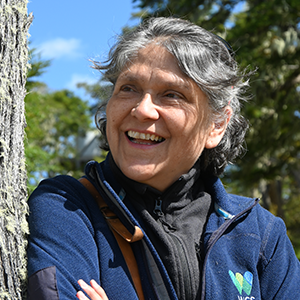 |
Directora WCS Chile
Doctora en Ecología y Biología Evolutiva, Universidad de Chile. Especializada en conservación de la biodiversidad, promueve el reconocimiento de su valor crítico para el bienestar humano y desarrollo sustentable, aportando con su mirada y experiencia a la creación de herramientas con base científica, en procesos inclusivos e innovadores, que permitan abordar la gestión de la conservación con efectividad. Bárbara ha sido miembro de: Consejo Consultivo del Ministerio de Medio Ambiente, Consejo Nacional para la Innovación y Desarrollo y el Consejo Chile-California y Directora de la Alianza Valor Minero, la Sociedad de Ecología de Chile y la Fundación Vive Chile.
|
 |
Barbara Saavedra
Directora WCS Chile
Doctora en Ecología y Biología Evolutiva, Universidad de Chile. Especializada en conservación de la biodiversidad, promueve el reconocimiento de su valor crítico para el bienestar humano y desarrollo sustentable, aportando con su mirada y experiencia a la creación de herramientas con base científica, en procesos inclusivos e innovadores, que permitan abordar la gestión de la conservación con efectividad. Bárbara ha sido miembro de: Consejo Consultivo del Ministerio de Medio Ambiente, Consejo Nacional para la Innovación y Desarrollo y el Consejo Chile-California y Directora de la Alianza Valor Minero, la Sociedad de Ecología de Chile y la Fundación Vive Chile.
|
|
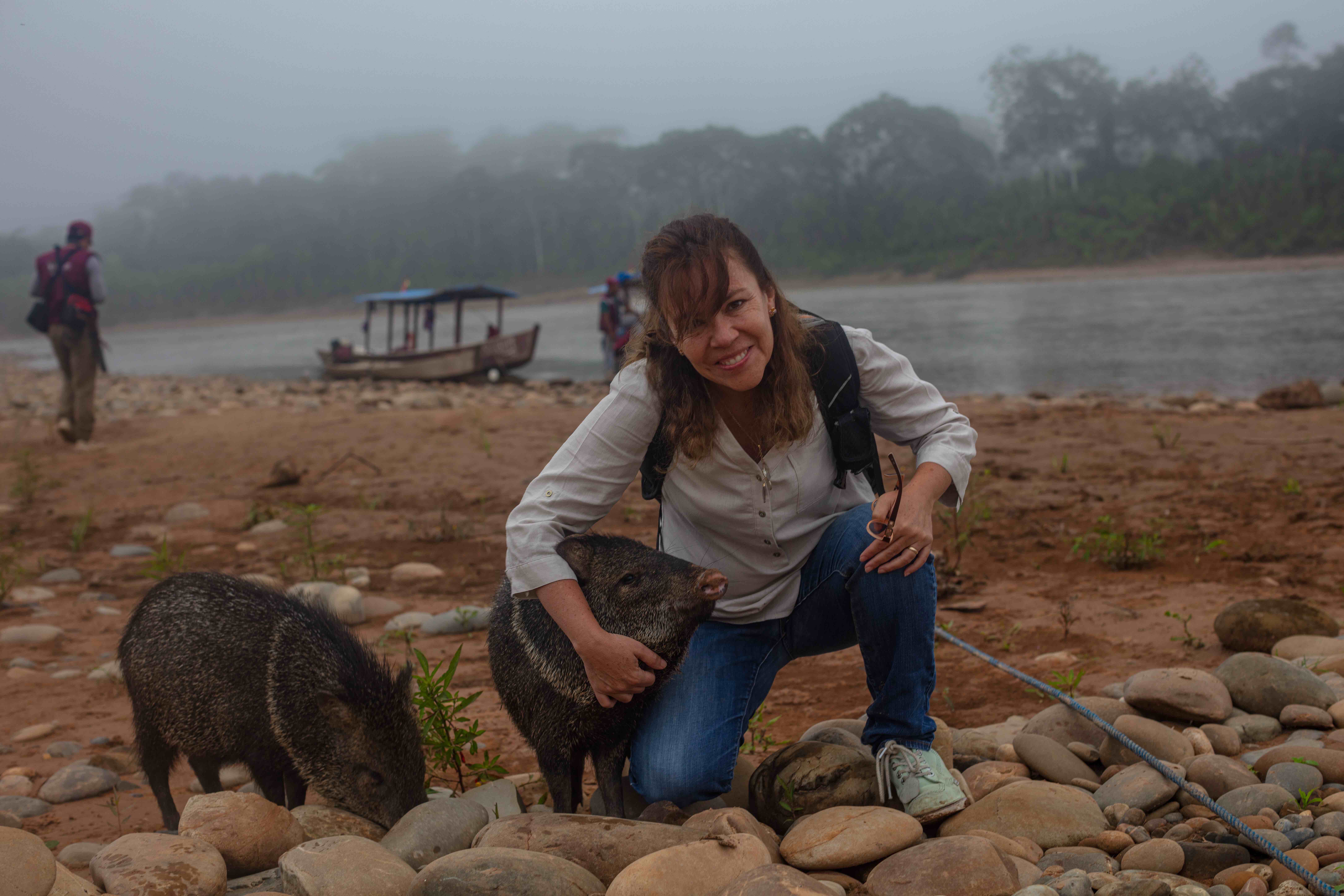 |
Country Program Director
Lilian Painter completed her PhD in Liverpool University, United Kingdom in Behavioural Ecology, before starting work in the Greater Madidi-Tambopata Landscape. She is now director of the Bolivia country program. She has led the development of management plans over 2,300,000 hectares of proteceted areas in the landscape and promoted alliances to support conservation with a wide array on organizations from indigenous and peasant organizations, to local, regional and national state and private entities. She has been awarded a prize by the protected area service of Bolivia as the most important contribution to the protected area service from civil society.
|
 |
Lilian Painter
Country Program Director
Lilian Painter completed her PhD in Liverpool University, United Kingdom in Behavioural Ecology, before starting work in the Greater Madidi-Tambopata Landscape. She is now director of the Bolivia country program. She has led the development of management plans over 2,300,000 hectares of proteceted areas in the landscape and promoted alliances to support conservation with a wide array on organizations from indigenous and peasant organizations, to local, regional and national state and private entities. She has been awarded a prize by the protected area service of Bolivia as the most important contribution to the protected area service from civil society.
|
|
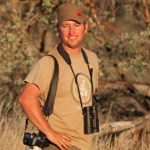 |
Director, Science and Research Initiative
James is an Associate Professor Fellow at University of Queensland and Director of Science and Research Initiative at the Wildlife Conservation Society. For the past six years, James has directed WCS’s climate change program, leading the planning and implementation of climate adaptation and REDD+ projects throughout WCS’s landscape, seascape, and species conservation programs. He currently serves on the leadership committee for the Science for Nature and People (SNAP) Initiative, the International Panel for Biodiversity and Ecosystem Services (IPBES) Data and Knowledge Task Force, and was chair of the IUCN’s climate change specialist group. James was recently elected the global president of the Society for Conservation Biology. He is the director the Green Fire Science research group (www.greenfirescience.com) whose mission is to do applied research that is linked directly to the practice of conservation. in 2004 where, funded by a Rhodes Scholarship, he explored the effects of habitat fragmentation on birds in Madagascar and Australia. James is the current President-elect of the Society of Conservation Biology; Chair of the IUCN’s Climate Change Specialist Group; an Associate Professor at the University of Queensland, Australia; an editor of four conservation journals (Conservation Biology, Diversity and Distributions, Scientific Reports, and Pacific Conservation Biology); and he has published more than 80 peer-reviewed and popular articles on conservation-related issues.
|
 |
James Watson
Director, Science and Research Initiative
James is an Associate Professor Fellow at University of Queensland and Director of Science and Research Initiative at the Wildlife Conservation Society. For the past six years, James has directed WCS’s climate change program, leading the planning and implementation of climate adaptation and REDD+ projects throughout WCS’s landscape, seascape, and species conservation programs. He currently serves on the leadership committee for the Science for Nature and People (SNAP) Initiative, the International Panel for Biodiversity and Ecosystem Services (IPBES) Data and Knowledge Task Force, and was chair of the IUCN’s climate change specialist group. James was recently elected the global president of the Society for Conservation Biology. He is the director the Green Fire Science research group (www.greenfirescience.com) whose mission is to do applied research that is linked directly to the practice of conservation. in 2004 where, funded by a Rhodes Scholarship, he explored the effects of habitat fragmentation on birds in Madagascar and Australia. James is the current President-elect of the Society of Conservation Biology; Chair of the IUCN’s Climate Change Specialist Group; an Associate Professor at the University of Queensland, Australia; an editor of four conservation journals (Conservation Biology, Diversity and Distributions, Scientific Reports, and Pacific Conservation Biology); and he has published more than 80 peer-reviewed and popular articles on conservation-related issues.
|
|
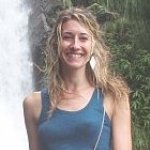 |
Program Officer
Kate Mastro has been with WCS since 2005, working for the Training and Capacity Building Program, the Living Landscapes Program and the WCS Institute, among others. At Providence College, she studied Spanish and Public and Community Service Studies, as well as Humanities. While an undergraduate, she interned with an organization focusing on empowering women, FINCA Perú, located in Ayacucho. In Peru, Kate worked with a community-led daycare, soup kitchen and local women’s group. Kate received a Master’s degree in Global Affairs focusing on issues concerning gender, race and class from Rutgers University in May 2010. She is currently a Program Officer for Conservation Operations where she is responsible for managing the Graduate Scholarship Program.
|
 |
Kate Mastro
Program Officer
Kate Mastro has been with WCS since 2005, working for the Training and Capacity Building Program, the Living Landscapes Program and the WCS Institute, among others. At Providence College, she studied Spanish and Public and Community Service Studies, as well as Humanities. While an undergraduate, she interned with an organization focusing on empowering women, FINCA Perú, located in Ayacucho. In Peru, Kate worked with a community-led daycare, soup kitchen and local women’s group. Kate received a Master’s degree in Global Affairs focusing on issues concerning gender, race and class from Rutgers University in May 2010. She is currently a Program Officer for Conservation Operations where she is responsible for managing the Graduate Scholarship Program.
|
|
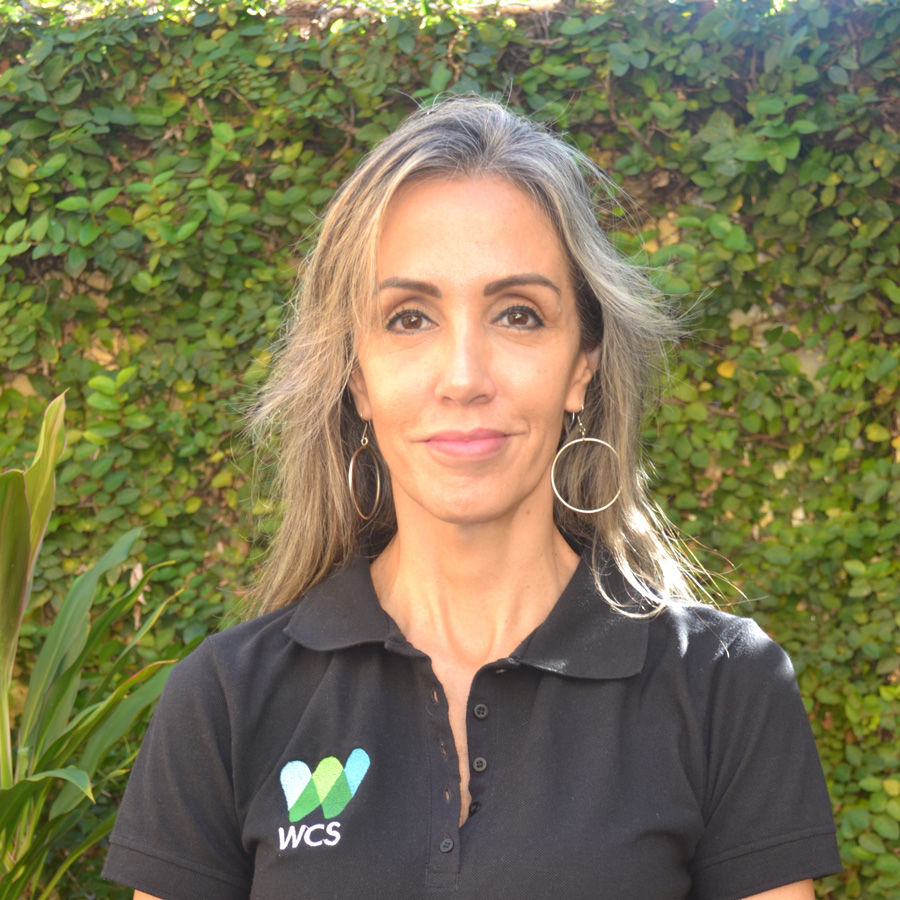 |
Directora de Programa País
After finishing her engineering degree, and working for two years as a technical assistant in the public land tenure sector, Maria del Carmen Fleytas Jover completed her MSc in Management and Implementation of Development Projects at Manchester University in 2000, before performing technical positions succesively at the public and NGO sector for more than 10 years, always linked to sustainable development. She has written and/or co-written three publications about environment and conservation, fields in which she has been working since 2005.
|
 |
María del Carmen Fleytas
Directora de Programa País
After finishing her engineering degree, and working for two years as a technical assistant in the public land tenure sector, Maria del Carmen Fleytas Jover completed her MSc in Management and Implementation of Development Projects at Manchester University in 2000, before performing technical positions succesively at the public and NGO sector for more than 10 years, always linked to sustainable development. She has written and/or co-written three publications about environment and conservation, fields in which she has been working since 2005.
|
|
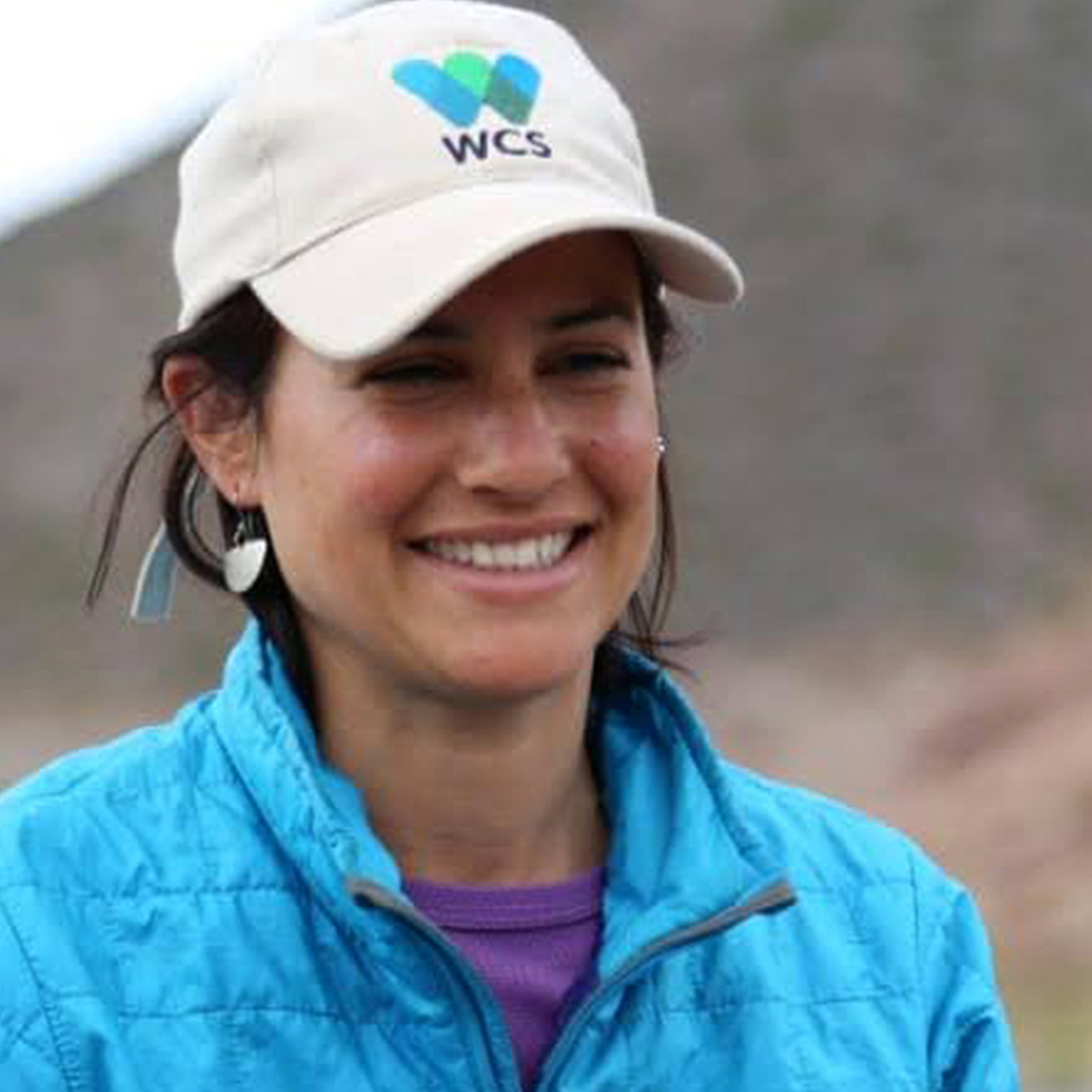 |
Regenerative Management Manager
Maria Jose Bolgeri has a PhD in Biology. She worked with WCS Argentina for more than 15 years as a consultant, and became full-time staff in 2022, as the Coordinator of Coexistence Strategies for the Terrestrial Program, responsible for developing and testing tools for and working with livestock producers and government agencies for the implementation of wildlife friendly management of livestock production. She lead research on guanacos in La Payunia, serving as a liaison for WCS with government partners and livestock producers in Mendoza, developing of non-lethal tools for predation management, and directs of the livestock guarding dog breeding facility.
|
 |
María José Bolgeri
Regenerative Management Manager
Maria Jose Bolgeri has a PhD in Biology. She worked with WCS Argentina for more than 15 years as a consultant, and became full-time staff in 2022, as the Coordinator of Coexistence Strategies for the Terrestrial Program, responsible for developing and testing tools for and working with livestock producers and government agencies for the implementation of wildlife friendly management of livestock production. She lead research on guanacos in La Payunia, serving as a liaison for WCS with government partners and livestock producers in Mendoza, developing of non-lethal tools for predation management, and directs of the livestock guarding dog breeding facility.
|
|